Tonga’s snap election dampens women’s representation hopes
07th September, 2017

Ms ‘Ofa Guttenbeil-Likiliki. (Photo: RNZI / Koro Vaka’uta)
Last month’s dissolution of Tonga’s Parliament by royal decree has put plans for greater representation for women on the backburner.
Elections are to be held on November 16, a year earlier than planned, dampening the hopes of Tonga’s women’s rights advocates.
Like many Pacific countries Tongan women are struggling to have a voice in the legislature.
Only one seat out of Tonga’s 26 seat parliament has been held by a woman this term.
The Women and Children Crisis Centre Director, ‘Ofa Guttenbeil-Likiliki, is part of a group pushing for greater representation.
She says the dissolution of parliament last month, while unexpected, wasn’t shocking.
“It wasn’t something that shocked my system. I just feel that politically we have been all over the place this year and certainly through the deliberations that have come out of Parliament, I’ve felt a sense of not being able to pinpoint where we were at.”
The Director of the Civil Society Forum, ‘Emeline ‘Ilolahia, says a lot of hope was placed in the government of ‘Akilisi Pohiva, the first commoner to be elected prime minister.
“We felt that this government does represent that democratic journey that we have. We felt that this government had a lot of criticism. People had that kind of access. They can say a lot of things about this government. How things are done.”
There were indications the Pohiva government was going to push for special seats for women during its first term.
The only female MP ‘Akosita Lavulavu said last year she would be pushing the idea.
“People are just so very used to hearing male voices on radio, in parliament, and they just believe that a woman’s place is in the home and not in parliament and that is a mindset that I believe that we have to try and change in the future because I believe that it is very important that women do have a seat in parliament.”
Emeline ‘Ilolahia says just two weeks out from the dissolution a proposal for four extra seats for women was presented to the cabinet.
She says the early elections have now curtailed those efforts.
“A lot of our community are really run by women. In terms of their economic development, in terms of projects, in terms of a lot of other things, they are really the ones that are in the machinery. If we could help them move with that into a national level and if Tonga had to seriously consider that they value their contribution, then we have to give them a chance.”
‘Ofa Guttenbeil-Likiliki says she thought the Pohiva government would have helped increase women’s representation because democracy was their mantra.
“I feel that we are going backwards in terms of our movement and in terms of the things we want to put on the table. It’s striking the balance between where can we say there have been positive changes in terms of democracy and where do we highlight the question is for me is who’s democracy is it.”
She says it is time for women to rise up and take the opportunity to lead.
“The men have failed us totally and we have got to a point in our democratic transformation history that parliament has been dissolved. So what I am saying here is that this is an opportunity for us women to get in more numbers and maybe we can be that change that people are looking for.”
‘Emeline ‘Ilolahia says the short lead-in to elections could hamper women candidates who need more encouragement and preparation to run because of cultural restrictions.
But Ms Guttenbeil-Likiliki says it could actually work in their favour.
“Twelve months before the next elections, we start seeing the male candidates, who are currently in parliament, using their constituency development funds to do a whole lot of development projects around their villages, around their constituencies so that it raises their profile and their popularity amongst the voters. That’s all gone now.”
Ms ‘Ilolahia says her group is ready to help women who want to stand.
“Because even campaigning for women is tough. Because when you also see that men have access to kava club and a lot of other community forum that women don’t usually. ”
The two leaders and interested women are expected to meet this week to map out their plans for the election.
[Source: Radio New Zealand, 07 Sep 2017]

